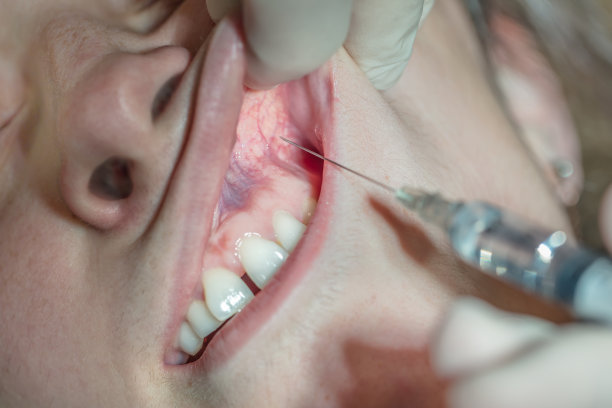Summary: Root canal treatment can be a daunting prospect for many, yet it plays a critical role in maintaining optimal oral health. This article outlines essential guidelines that ensure not only the success of the procedure but also the safety of the patient. By choosing the right dental professional, preparing adequately for the treatment, following post-treatment care guidelines, and understanding the possible complications, patients can significantly improve their chances of a successful outcome. Each section provides a detailed explanation of best practices, which empowers patients to take charge of their oral health effectively.
1. Choosing the Right Dental Professional

The success of a root canal largely hinges on the expertise of the dental professional performing the procedure. It is crucial to choose an endodontist or a dentist with a solid reputation and extensive training in root canal treatments. Evaluate their qualifications, experience, and patient reviews to ensure they have a proven track record.
Additionally, seeking referrals from friends or family members can lead you to reliable practitioners. Online resources, such as professional dental associations, can also provide lists of certified specialists. Make a point to consult with potential candidates and inquire about their approach to patient care, comfort during procedures, and follow-up practices.
Lastly, consider the technology utilized within the practice. Advanced tools such as digital X-rays and electronic apex locators can enhance the accuracy of the procedure, resulting in a more successful outcome and quicker recovery.
2. Preparation for Your Root Canal Treatment
Preparation is key to ensuring a smooth root canal treatment. Prior to the appointment, it is advisable to gather relevant medical history and inform the dentist about any pre-existing conditions or medications. This information allows the dental professional to tailor their approach to your specific health needs.
Its also essential to maintain good oral hygiene leading up to the appointment. Regular brushing and flossing help reduce the number of bacteria in the mouth, which can minimize the risk of infection during and after the procedure. If prescribed medications or antibiotics, ensure to follow the instructions diligently.
Finally, addressing any anxiety about the procedure is important. Discuss your concerns with your dentist, who may offer sedatives or comfort measures to ease your nerves. A calm mindset will facilitate a more successful treatment experience.
3. Post-Treatment Care Guidelines
Following a root canal, adhering to post-treatment care is vital for a speedy recovery. Initially, its important to allow the anesthesia to wear off before eating. Soft foods are advisable for a few days to avoid strain on the treated tooth. Always follow the specific dietary recommendations provided by your dentist.
Maintaining impeccable oral hygiene continues post-treatment. Brush and floss as usual but be gentle around the treated area. Additionally, using an antibacterial mouthwash can help reduce the risk of infection.
Monitoring for any unusual symptoms is equally critical. Mild pain or sensitivity may occur, but persistent pain, swelling, or fever may indicate a complication that requires prompt communication with your dentist. Timely follow-ups are also important to assess healing and ensure long-term success.
4. Understanding Possible Complications
While root canal treatments are generally successful, it is crucial to understand some possible complications. One common issue is reinfection, which may occur if bacteria enter the tooth after the treatment. This can often be prevented by following proper oral hygiene practices post-treatment.
Another potential complication is the failure of the treatment due to the complex anatomy of the tooth roots, which can sometimes be challenging to clean thoroughly. Regular check-ups will help identify any problems early on, allowing for prompt intervention.
Patients should also be aware of the potential for damage to surrounding teeth, nerves, or blood vessels. Discussing any concerns with your dentist beforehand can help in making informed decisions regarding treatment plans.
Summary:
In conclusion, ensuring a successful and safe root canal treatment involves several steps that patients must take to promote optimal oral health. By choosing a qualified dental professional, adequately preparing for the procedure, following diligent post-treatment care, and understanding possible complications, individuals can significantly enhance their treatment experience.
This article is compiled by Vickong Dental and the content is for reference only.
Vickong Dental
Vickong Dental is a large medical group established in Hong Kong in 2008 by professors from well-known medical universities in Guangdong and Hong Kong, as well as medical doctors from key national '985' universities (including Master's supervisors and senior professors). The chain of branches brings together expert dentists with PhDs and Master's degrees from Hong Kong and Mainland China, committed to providing high-quality dental treatment.
"Vickong Dental Practices the University Motto of 'Healing and Serving Society,' with a Stable Operation for Sixteen Years. It Has Been honored with Hong Kong Enterprise Leaders's Choice,' and is a Global Trusted Implant Center for the Nobel Implant System. Recommended by Hong Kong Metro Broadcast and Guangdong Television, it Serves Customers from Over Thirty Countries and Regions, Gaining the Trust and Favor of Citizens from the Guangdong-Hong Kong-Macau Greater Bay Area and Surrounding Cities.

Thousands of customers' unanimous praise
The most recognized and highly recommended dental service by customers in the Guangdong-Hong Kong-Macau Greater Bay Area
We Ensure You Receive Detailed Care and Attention Here
Hong Kong standards, Shenzhen prices, Your Trusted English-speaking dentists

Vickong Dental Medical-Grade Instrument Disinfection Process
Vickong Dental Medical-Grade Instrument Disinfection Process

Vickong Dental Chain: A Warm and Comfortable Environment for Treatment






Appointment Hours

Q&A
Why choose Vickong Dental?
Vickong Dental practices the university motto 「Medicine to Benefit Society」, with each branch bringing together highly qualified dentists with doctoral and master’s degrees from Hong Kong and the Mainland, and has maintained seventeen years of steady operation。Recipient of 「2024 Hong Kong Enterprise Leaders Brand」, 「2025 Hong Kong Enterprise Leaders Brand」, a Nobel Biocare Global Trusted Implant Center, and a brand recommended by Metro Radio Hong Kong and Guangdong TV。
To date, we have served customers from more than thirty countries and regions,earning exceptionally high word-of-mouth recognition and trusted recommendations from residents across the Guangdong-Hong Kong-Macao Greater Bay Area and surrounding cities
We have eight major branches in Zhuhai、Shenzhen,and a consultation and service assurance center in Hong Kong,so you can book a free consultation at any time for any questions,which is very reassuring.
If I do not accept the quotation after the CT scan, will I be charged??
No! As long as the actual treatment has not started, you will not be charged any fees.
Will there be any additional charges during the treatment process?
No, there won’t be any additional charges. Before treatment begins, we will clearly explain the treatment plan and its corresponding fees. Only after the patient agrees and signs the consent form will we proceed with the dental service.
Can I pay in Hong Kong dollars?
Yes. Vickong Dental accepts payment in Hong Kong dollars. The amount will be converted based on the exchange rate of the day, and the applicable rate will be clearly communicated to you in advance.
Can I reschedule my appointment at any time?
Yes. Please contact us via **WeChat** or **WhatsApp** as early as possible, providing your original appointment time and details, along with your preferred new date and time slot for rescheduling.













